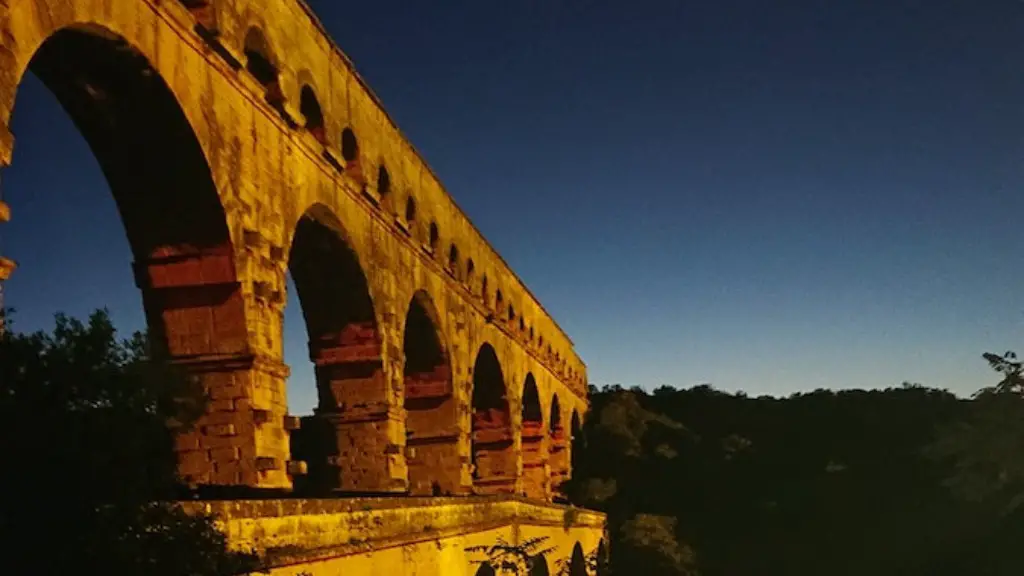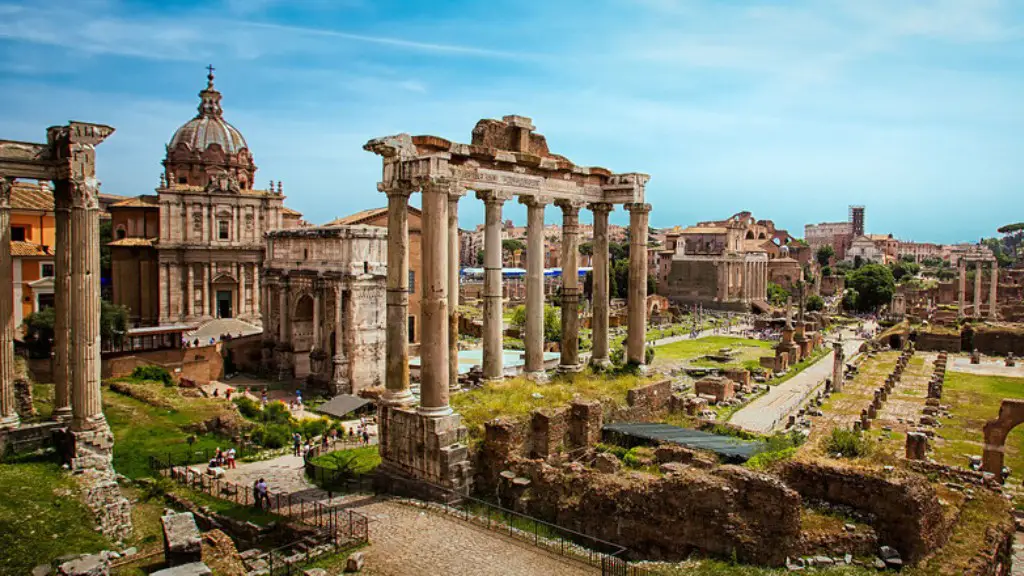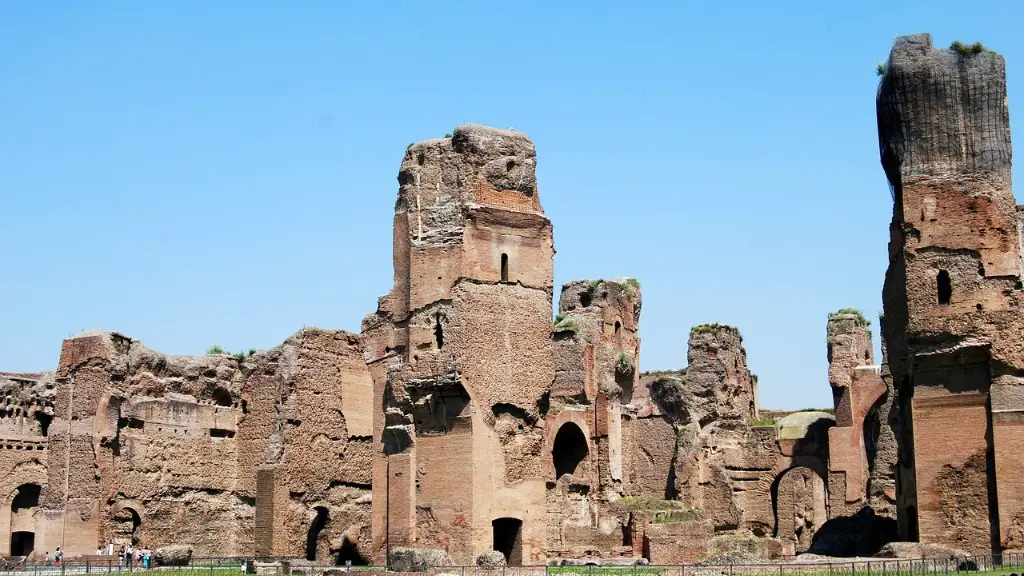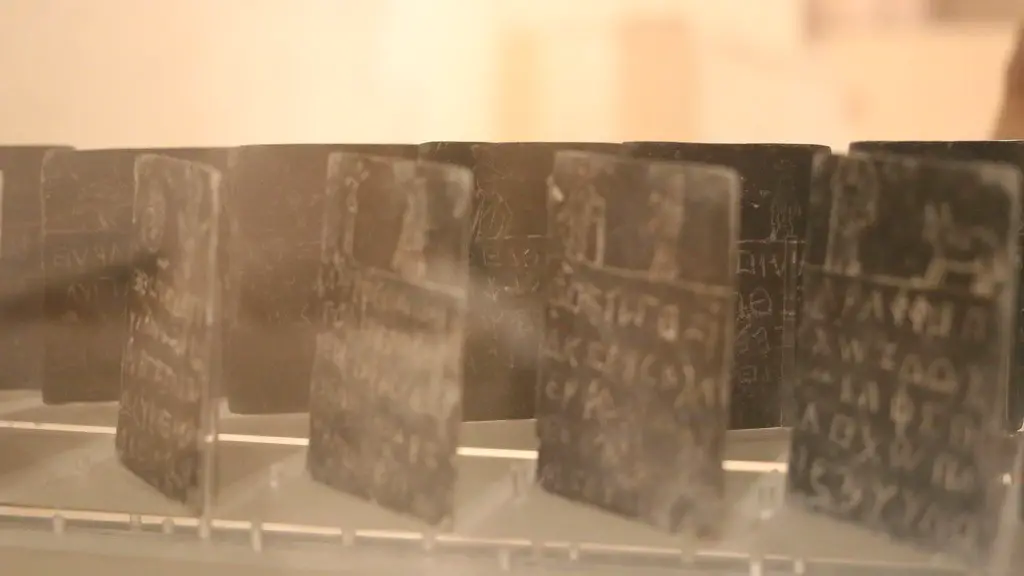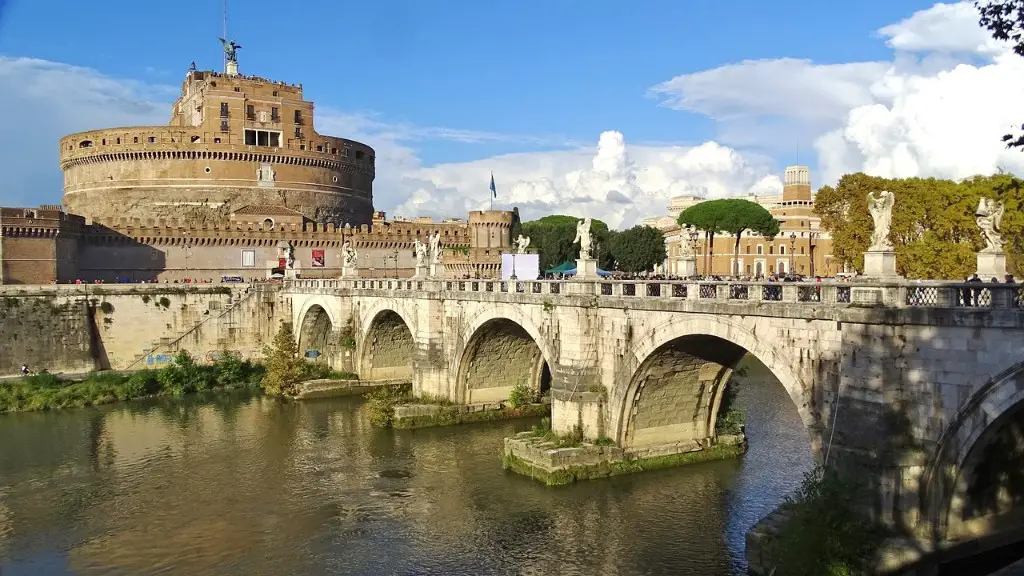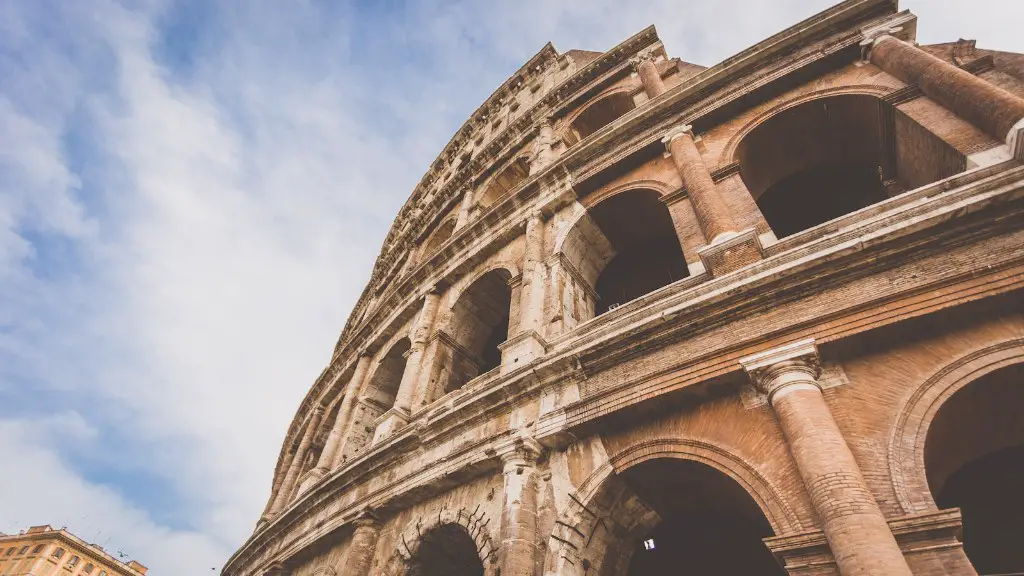Consuls were an essential feature of Ancient Rome for over five hundred years. During this period, consuls served as the highest-ranking elected officials in the Roman Republic, and later the Roman Empire. They were in charge of commanding armies, maintaining the laws, and presided over the Senate.
The position of consul was instituted after the expulsion of the last king of Rome in 509 B.C. Two consuls would be elected for a year to lead the Republic. They would then alternate duties during their year-long term. This arrangement was formulated to prevent the consuls from amassing too much power.
The consuls were the most powerful men in the Roman Republic and were required to have a long record of proven character. Candidates had to have served six years as military tribunes or had to be at least forty-two years of age. As elected leaders, consuls held a great deal of respect, and were even depicted as gods on coins and statues.
The Roman consuls had the authority to conclude treaties and declaration of war, as well as the power to levy new taxes. They had access to the state’s resources and could inspect the treasury to assess its wealth. Additionally, consuls were responsible for supervising the Senate, which meant that laws passed by the senators came with the consul’s handover. Augustus Caesar, who was the first emperor of Rome, also held the consul position for many years.
In the early years of the Republic, elections for the consul position were held at the start of every year. Towards the end of the Roman Republic and the rise of the Roman Empire, however, consuls were appointed by the emperor instead. This suggests that the powers of the consuls were slowly being taken away.
Role of the Consuls in Ancient Rome’s Political System
The consuls of Ancient Rome were the heart of the Republic’s political system and had great power and influence. They presided over the Senate, passing or vetoing new laws and regulations. They were also the face of Rome to other states, representing the Republic in foreign trade and negotiations.
The consuls also managed a wide range of civil and religious matters. A consul’s power was such that everyone from the most influential senators to the lowest peasants respected their authority. This was due to the fact that the consuls had the power to appoint new officials, declare war, approve treaties, and conduct other important decisions.
Furthermore, consuls had the power to appoint new governors, who were responsible for the administration of the provinces and maintained the general order and welfare of the area. This ensured that all areas of the Roman Republic were unified under the laws and regulations of the consul’s authority.
The Roman consuls had many responsibilities, which meant they were highly respected throughout the Republic. As a result, consuls were given a great deal of respect and recognition both during their terms in office and after their terms were over.
Changes to the Consul’s Role During Roman Empire
Although the consuls of the Republic had a great degree of authority, this diminished during the reign of the Roman Empire. Augustus Caesar, for example, made it so the consuls no longer had to be approved by the Senate, as well as giving himself the power to appoint them. This significantly weakened the power that the consuls of the Republic had.
The changes to the consul’s power continued during the Roman Empire, as Augustus Caesar also made it so that he was the sole ruler of the Roman Empire. This meant that while the consuls still held the position of the highest-ranking elected officials, they were no longer the sole leaders of the Republic.
The weakening of the consuls’ power also manifested itself in military matters, as Augustus centralized the army. This took away the consuls’ responsibilities of leading the armies during times of war and appointed commanders to do this instead. It is clear, then, that the Rome Empire saw a steady decline in the power of the consuls.
In addition to the changes in the consuls’ authority, their term also changed from one year to three months. This meant that the consuls’ duties and responsibilities were now much more short-term and less comprehensive than those in the Republic. It is clear then that the leadership of the Republic was more centralized and less based on election during this time.
Famous Consuls of Ancient Rome
Throughout the long span of the Roman Republic and the early Empire, a great number of famous consuls rose and held office. Men such as Appius Claudius Caecus, Quintus Fabius Maximus Verrucosus, and Gaius Marius rose through the ranks and became the most influential consuls of their time.
Appius Claudius Caecus was one of the most famous consuls in Ancient Rome, becoming the censor and the first to build the Appian Way, a main highway that connected Rome to the rest of Italy. He also helped to reform the Roman military, making it more effective and efficient.
Quintus Fabius Maximus Verrucosus was a highly decorated military general, who is remembered for his strategy of attrition known as ‘Fabian Strategy’. This strategy was highly successful during the Second Punic War, as it allowed the Romans to slowly weaken the Carthaginians before defeating them.
Gaius Marius was another famous Roman consul, who is remembered for reforming the Roman military. He greatly expanded the Roman army, allowing it to become even more powerful. He is also credited with diversifying the army and ending the reliance on aristocratic landowners as military officers.
These famous consuls of Ancient Rome had a great deal of power and influence, and shaped much of Rome’s political and military history in the process. Their legacies remain to this day, as those of some of the most influential consuls in Roman history.
Legacy of the Ancient Rome Consuls
The consuls of Ancient Rome left a lasting legacy on the Roman Republic and the Roman Empire. Despite the changes implemented by Augustus Caesar and the other Emperors, the consuls played a major role in maintaining the underlying laws and keeping the Republic united.
The consuls’ legacy can also be seen through the countless statues and coins from the time. These depictions serve as a testament to the respect and recognition held for the consuls and the immense power they held. As such, the consuls of Ancient Rome are remembered for the role they played in keeping the Republic and the Empire together.
The consuls of Ancient Rome also left their mark on the Roman legal system and administration. Consuls were responsible for appointing fellows or other high-ranking officers, as well as maintaining records of marriage, property, and lawsuits. This system of justice established by the consuls provided a foundation on which the Empire was built.
The legacy of the Ancient Rome consuls can still be seen today in the systems of government used around the world. It is clear that the legacy of the consuls has had an immense and profound effect on the world throughout history.
Conclusion of Ancient Rome Consuls
The consuls of Ancient Rome were some of the most powerful and influential people in the Republic and the Roman Empire. They had great authority, both in terms of military and political matters. The position of consuls allowed Ancient Rome to remain strong and unified, and their legacy can still be seen in the systems of government used around the world today.
